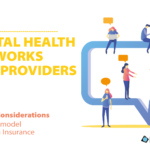The biggest enemy of those who work seriously in the field of new technologies, software development, or any of the disciplines that seek to improve processes, data, people’s lives with new (or old) technologies, is frustration.
While not unique to the IT industry, the frustration of the labor market (feeling empty, that the work one is doing has no purpose) takes on special relevance when it affects those who seek that human, productive or quality advancement as a result of daily performance. It is therefore important to adapt and deal with this “engineer’s” frustration because we cannot do without a certain motivation to endure a modern working life, with increasing retirement ages.
Knowing that mood cannot be rationalized, and that most professional frustrations come from external factors that are impossible to control, let’s take a look at the contingencies and mitigations that we can put in place not to survive, but live with frustration at all times.
Divergent interests
When approaching a digitization or automation project, whether implementing information systems, artificial intelligence solutions or other models, it is expected that the objective and interest of the participants will be to achieve that elevation of process sophistication, or the performance of an activity that is enhanced by technology. But often the interests of the companies diverge from our idealistic aspiration to change the world, and the economic and strategic criteria of the companies come into play, as well as the particular interests of the people involved in the project. Finding oneself in a situation where work does not seem to have the meaning we want, undoubtedly leads to a certain frustration and, with too much repetition, loss of motivation to want to change the world. However, we must be aware that no matter how small a change we achieve, it is in itself a success that should motivate us to do our best in every situation.

The good and the best
When we know how to do something well, we are usually frustrated if we have to do it in a mediocre way, or not as well as we could. But the success of any engineering project is closely linked to understanding the existing constraints and incorporating them into project management in order to achieve the best solution given those constraints or limitations. Accepting that we cannot do our best, and that we have to be content with something good, is a key to overcoming the frustration generated by “wanting and not being able to” and giving free rein to our capacity to do more and better. Because let’s not forget that, with few exceptions, technological activity is linked, like all other activities, to its budget, time and even personal contexts.
Losing the debate
It is very easy to work when all team members are homogeneous, think or have the same ways of acting, since discussions and therefore internal debates within the team are minimized. Just as the proximity in thought and criteria that one has when one is in primary education with their fellow students is lost with the following years of high school and other studies, when one reaches working age and accumulates years of experiences, different characters, values, interests and ideas are forged. Working in environments that are increasingly heterogeneous in terms of training, age, nationality or simply specialization, makes conflict and internal debate a constant that can lead to frustration if one claims to always be right. Again, we will not be doing things the way we would like to, because other people in the team have another perception, another idea, another preference. Leaving behind the right or wrong of things, and seeking the greatest consensus within the diversity of ideas and opinions, is another key to being able to cope with the usual frustrations of these professions without major problems.

They don’t understand me
Don’t you feel frustration when you try to explain something once, twice, twelve times, and they don’t understand you? Has the fatigue of constantly justifying obvious things made you lose enthusiasm for a project? Does not being able to communicate with new colleagues who are inexperienced and don’t know what they are doing create a big void? All these circumstances are intrinsic to the technological world, where in addition to communication barriers with outsiders, there is a lack of understanding of a complicated, technical language, full of anglicisms, and a great distance in the visions of a user of a system and a programmer. We cannot avoid communication difficulties and, therefore, instead of getting frustrated, we must acquire skills to improve the ways of conveying information, insisting on graphic forms as a complement to written and verbal ones, and a lot of empathy to be able to identify when we are not understood (and therefore we have to look for another way to explain ourselves) to avoid falling, again, into frustration.
Constant change
The trends of the last two decades in the technology sector have changed the initial objective of building and maintaining information systems that last and last, for the agility and immediacy in generating systems that cover present needs, delegating the adaptation to changes in the business to continuous improvement. Change therefore increases, it is presented as a constant, with which we have to live, even though it generates frustration to have to modify what has been previously done, either because of the need to adapt, or, it must be said, because it has not been sufficiently thought through. It is precisely this habitual change, working with the famous “constant beta” and the obsolescence of systems that has allowed a high development of the application of new technologies in different industrial fields and in the life of all of us and, in part, justifies the high demand for professionals linked to this constant, sometimes ephemeral, and omnipresent digitalization. Let’s say, when you get frustrated at having to change a system for the fourth time in a year, think that thanks to this there is work for everyone (without the need for change, there would be no need for so many IT people).




